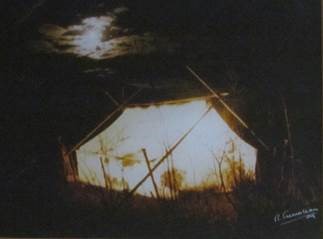 The old news about Easter is that it is about resurrection. The new news may be that it is not so much about the resurrection of Jesus as it is about our own. Unfortunately, we so often miss it. Jesus, you see, is already gone from one tomb. The only question now is whether or not we are willing to abandon our own, leave the old trappings behind and live in the light of Jesus, the Christ, whom the religious establishment persecuted and politicians condemned. It is the greatest question of them all in a world that practices religion as an act of private devotion and sees law and government as an arm of God.
The old news about Easter is that it is about resurrection. The new news may be that it is not so much about the resurrection of Jesus as it is about our own. Unfortunately, we so often miss it. Jesus, you see, is already gone from one tomb. The only question now is whether or not we are willing to abandon our own, leave the old trappings behind and live in the light of Jesus, the Christ, whom the religious establishment persecuted and politicians condemned. It is the greatest question of them all in a world that practices religion as an act of private devotion and sees law and government as an arm of God.
The resurrection to which Easter calls us — our own — requires that we prepare to find God where God is by opening ourselves to the world around us with a listening ear. This means that we must be prepared to be surprised by God in strange places, in ways we never thought we’d see and through the words of those we never thought we’d hear.
We must allow others — even those whom we have till now refused to consider — to open our hearts to things we do not want to hear. We must release the voice of God in everyone, everywhere. It means
putting down the social phobias that protect us from one another. It requires that we clean out from
our vocabulary our contempt for “liberals,” our frustration for “radicals” and our disdain for
“conservatives.” It presumes that we will reach out to all others — to the gays and the immigrants and
other races, to the strangers, the prisoners and the poor — in order to divine what visions to see with
them, what cries to cry for them, what stones to move from the front of their graves.
That will, of course, involve listening to women for a change, seeing angels where strangers are,
emptying tombs, contending with Pharisees and walking to Emmaus with strangers crying, “Hosanna” all the way.
Easter is not simply a day of celebration: It is, as well, a day of decision. What is really to be decided is
whether or not we ourselves will rise from the deadening grip of this world’s burnt-out systems to the
light-giving time of God’s coming again, this time in us.
Then the Easter Alleluia is true: God is surely “with us.”
“Ideas in Passing” from Joan Chittister: Easter 2010
http://www.benetvision.org/Ideas_In_Passing/04_05_10.html



